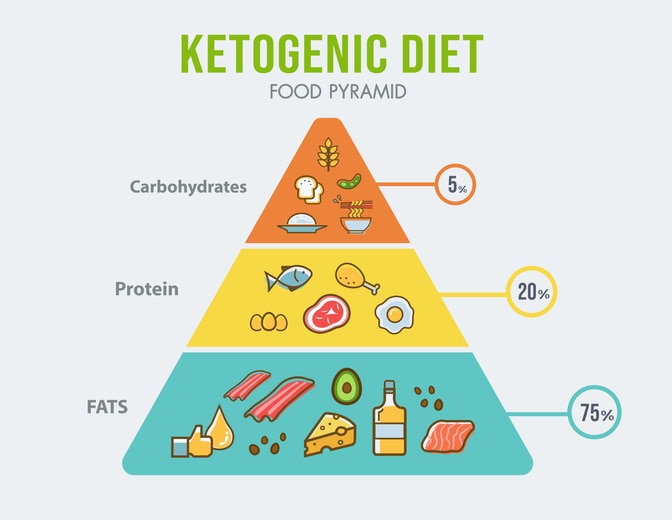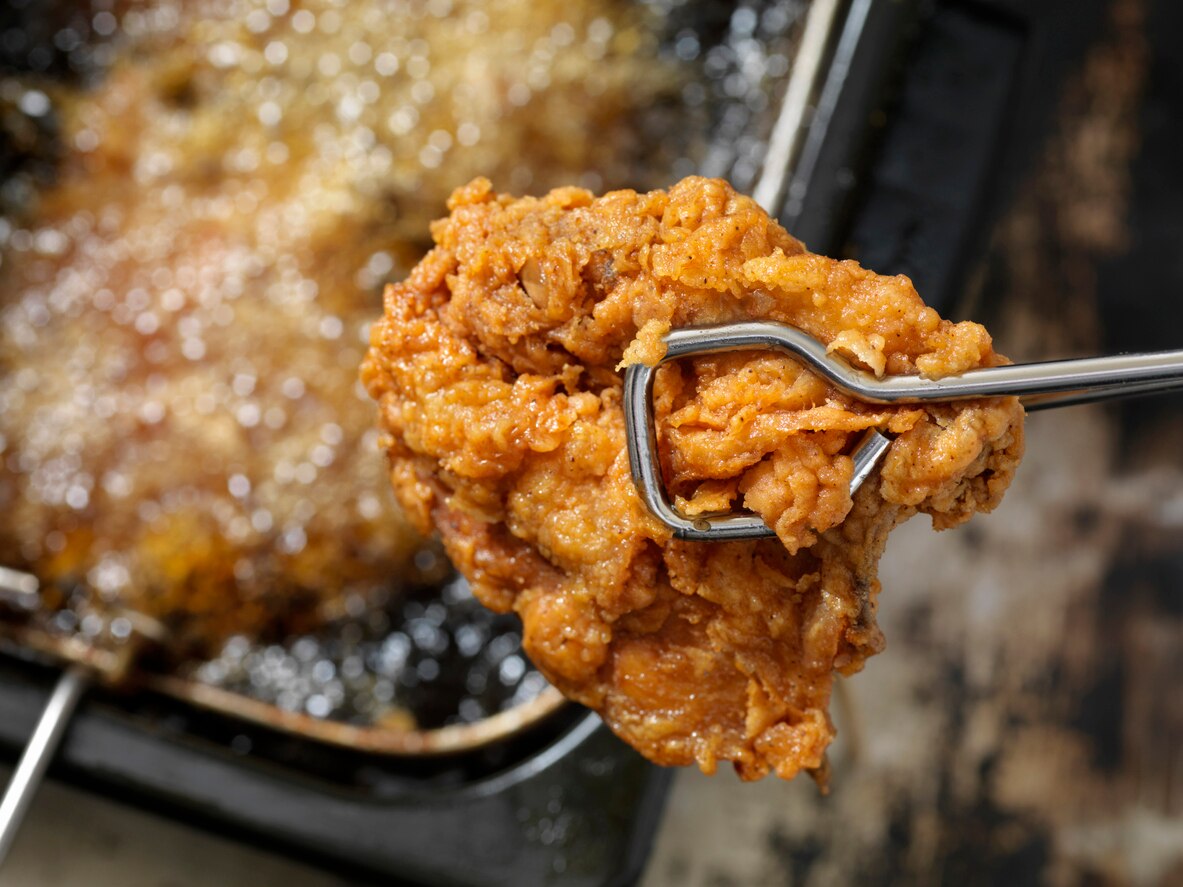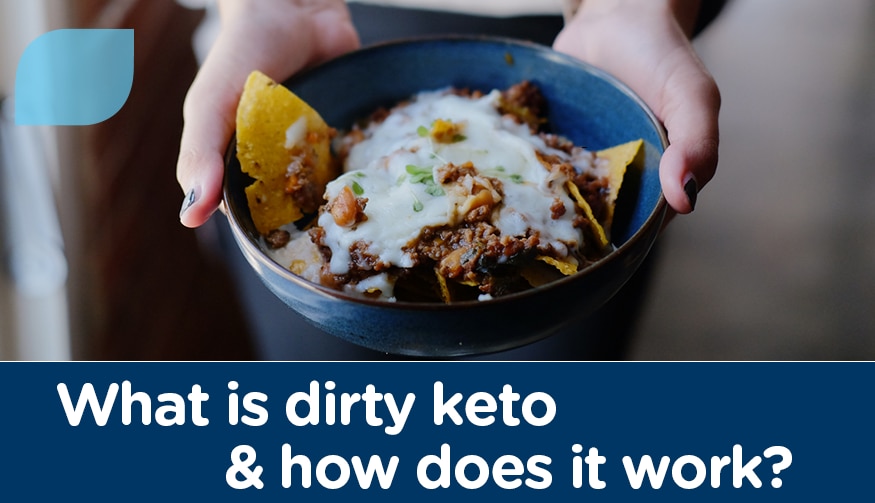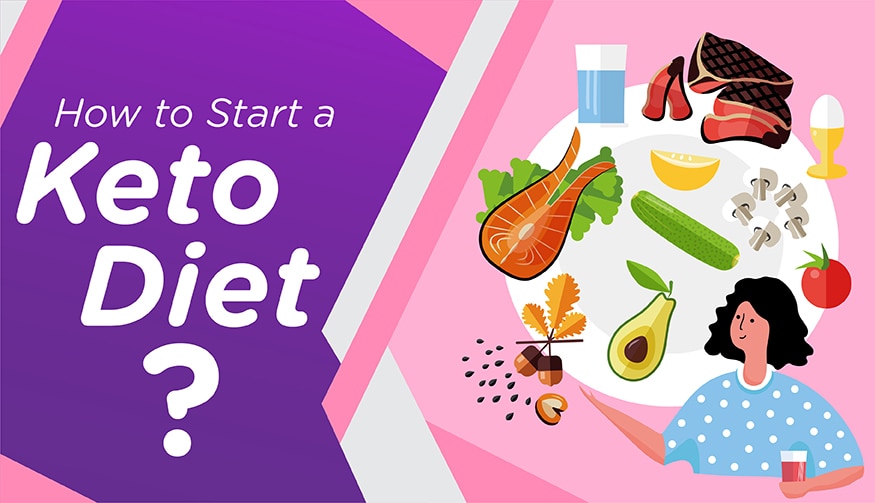What Is the Keto Diet?
Ketogenic Diet (a.k.a. Keto Diet) is a high-fat, moderate in protein and very low-carb diet, which helps burn fat, lower blood sugar and insulin levels to lose weight. It typically contains 75% fat, 20% protein, and only 5% carbs.
By strictly limiting the percentage of carbohydrate intake, it triggers a biochemical process called ketosis, which the body burns fat instead of fats for energy. This would help weight loss and improve blood sugar levels.

Difference between clean & dirty keto
The typical keto diet, also known as the “clean keto”, encourages a diet high in whole foods avoiding processed foods.
Recommended foods on the clean keto diet include:
- Healthy fat sources like olive oil, coconut oil, nuts, and avocados
- Low-carb vegetables
- Seafood
- Fresh meat & poultry
- Nuts & seeds
Whereas “dirty keto” diet, also called “lazy keto”, is one that focuses mainly only to the macronutrient ratio – that is, the ratio of fat, protein and carbs – of the diet. Meaning that you are allowed to eat rather “flexibly”, as long as the ratio is adhered, including junk foods.
Examples of foods that can be eaten on a dirty keto diet:
- Processed foods
- Low-carb snacks, such as potato or tortilla chips
- Pork rinds and beef jerky
- Cheese chips
- Salami
- Fried chicken
Since there’s more flexibility on dirty keto, some might find it slightly easier to maintain the diet for a longer period.

Downsides to dirty keto
As you might have noticed, foods typically consumed on dirty keto often contain little to no micronutrient value. While vitamins and minerals from whole foods are essential for our body to function normally, including keeping your immune system strong, producing energy, increasing your bones’ strength the lack of these micronutrients will have consequences—you may experience deficient in micronutrients such as calcium, zinc, vitamins C, D, and K etc.
Dirty diet meals with processed foods usually contain high sodium content, added sugars, saturated fats and additives. This causes concerns over the increased risk of high blood pressure, diabetes heart disease, cancer and obesity.
Bottom line: Dirty keto may be easier, but there may be a trade-off for your health
Although keto diet, no matter clean or dirty, could result in rapid weight loss especially in short term, following the keto diet long-term could be challenging, as it is rather restrictive by nature. Therefore you might find it difficult to achieve long-term success.
In general, It is suggested to avoid dirty keto due to its negative health effects brought by eating too many fast foods and processed foods.
Please consult your physician or other health care professional before starting any diet plan.










